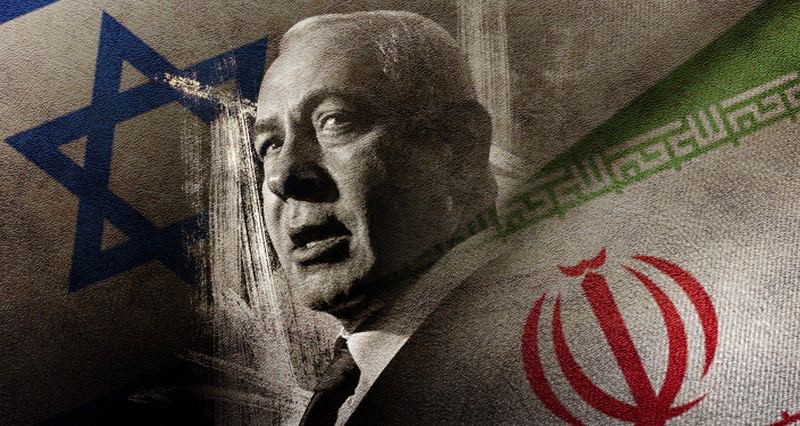Amidst negotiations for a ceasefire, Netanyahu may try to continue process by provoking Hezbollah.
Amidst negotiations for a ceasefire, Netanyahu may try to continue process by provoking Hezbollah.
By Adem Kılıç *
According to the latest US and Israeli claim, Iran cannot decide whether to retaliate for the assassination of Hamas leader Ismail Haniyeh.
The assumption is that there is a rivalry between Pezeshkian and the hardliners of the Revolutionary Guards and that the new President Pezeshkian is opposed to any aggressive strategy against Israel.
Another hypothesis is that Iran does not want to attract the United States and its allies with a major attack.
The last assumption, which is undoubtedly the favorite of conspiracy theorists, is that there is a ‘collusion between Israel and Iran’ and that ‘the parties will never harm each other’.
But why, in reality, has Iran not acted for two weeks?
Several factors play a role here.
First, Pezeshkian has not yet formed his government and, more importantly, he clearly does not yet have full control over state institutions, including the Iranian army. In fact, only yesterday, Pezeshkian submitted his list of ministers to the Iranian parliament for approval.
Secondly, according to the Russian media, Pezeshkian and Russian Security Council Secretary Sergei Shoigu, who visited Tehran on 5 July, did not reach a consensus on the timing of Iran’s retaliatory strike against Israel.
However, it should not be forgotten that timing also involves psychological warfare.
In the past two weeks, every level of Israel, including the military, has been in a state of panic, and reports in the Israeli media reveal that the Israeli public has been staying awake at night and some even staying in shelters for fear of a possible Iranian attack.
In fact, according to Haaretz, Prime Minister Benjamin Netanyahu has evacuated four important Israeli intelligence and security bases in Tel Aviv.
Third, while regional countries and the US are doing their best to pull the strings of the Gaza ceasefire talks between Hamas and Israel, Iran does not want to act as a ‘spoiler’.
What will be decisive at this point is the progress that will be made in the upcoming negotiations.
If the Israeli side guarantees in the talks that it will not invade Lebanon and will withdraw its troops from the Gaza Strip, Iran may postpone its expected operation. If the situation in the region changes radically after a ceasefire is reached between Hamas and Israel, Tehran may completely reconsider its position. The Iranian mission to the UN in New York said on Friday: ‘Our priority is to achieve a permanent ceasefire in Gaza. Any agreement accepted by Hamas will be recognized by us. However, we would like to emphasize that our response will be timed and executed in a way that will not harm any possible ceasefire.’
On the other hand, Iran is well aware that the outcome of the Hamas-Israel talks with the release of the American hostages has the potential to boost Joe Biden’s presidential legacy and Democratic Party candidate Kamala Harris’ chances in the November elections. Biden and Kamala Harris, who want to capitalize on this opportunity before the November elections, are using all available channels to soften Iran’s attack on Israel.
Indeed, the Americans have clearly divided themselves over Haniyeh’s assassination. According to the Washington Times, they have even conveyed to Tehran that an escalation of tensions would bring the risk of a US-Iran conflict and that they do not want this.
With Israel’s international image in tatters, both in human rights and military terms, a large-scale Iranian attack could put Israel back in the ‘victim’ position. And this is exactly what Netanyahu wants. With the assassinations of Haniyeh and Shukr, Netanyahu has used every means at his disposal to attract international allies, including the United States, to the region by expanding the war to include Iran.
The only thing that would allow Netanyahu and his far-right government partners to achieve their theological goals and cover up their crimes is if Israel were to be attacked in a major way and, by playing the role of ‘victim’, the process would reach the point of ‘we were right about the Gaza attacks’.
As a result, Netanyahu feels trapped for the first time since the beginning of the war.
If Netanyahu does not accept the ceasefire, the US will blame him, and Iran will most likely retaliate with a simple retaliation to prevent the US from entering the fray.
It seems that all the plans of Netanyahu, who considers himself a political and strategic genius, have been turned upside down and, having failed to get what he wants from Iran, Netanyahu may try to continue the process by provoking Hezbollah.
* Political scientist
















Leave a Reply